10 start with G start with G

We all know what “WTF” usually means: it’s an exclamation of frustration, anger, and an understandable reaction to the brutal new economic realities that have hit young adults harder than any other group. WTF happened to promises of a bright future? What happened to the jobs? And what do we do now that the rules have changed?
Recent college grads were raised in a time of affluence and entitlement, lulled into thinking that a golden future would happen. Young adults with few role models to teach values like thrift, perseverance, and self-control are ill-equipped to cope with sacrifice and failure. Their dismal employment prospects are merely the most visible symptom of more significant challenges. Fortunately, it’s not too late to change course. This optimistic, reflective, and technologically savvy generation already possesses the tools to thrive—if only they learn to harness the necessary skills for success.
In Generation WTF, Christine Whelan does just that. Dr. Whelan, one of the foremost authorities on the history of the self-help genre, worked with more than one hundred young people to test and tweak the best old-school advice and personalize it for the modern twenty-something. After a decade of researching the industry—and years advising “WTFers” as they struggle to make their way in the “real world”—Dr. Whelan knows firsthand what advice works and what Generation WTF has to offer.
Rather than focusing on the frustration that “WTF” usually stands for, Dr. Whelan leads the charge to reclaim the acronym as a battle cry for a positive future: Generation WTF will be a wise, tenacious, and fearless generation, strengthened by purpose and hope. This practical new guide will show these WTFers the way to success and instill lasting habits that will serve them well in both good times and bad.
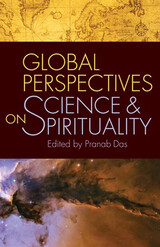
Gathering thinkers from ten countries and various scientific and spiritual backgrounds, Global Perspectives on Science and Spirituality leads readers on a fascinating tour of distinctly non-Western approaches to topics in these two fields. These voices add fresh and invigorating input to a dialogue that has thus far been predominantly guided by scholars from the United States or Western Europe.
The award-winning researchers in this volume were selected from a pool of over one hundred and fifty applications. They offer the very best scholarship from underrepresented regions around the globe. The essays cover a broad spectrum of scientific fields, spanning mathematical physics, robotics, biosemiotics and other new schools of theoretical biology, embryonic stem cells, cognitive science, and the concept of opening the human mind to broader ideas of reality. Hailing from some of the top research institutions in India, Japan, Russia, Korea, China, and a variety of Eastern European nations, contributors offer unique insights into their cultures' spiritual and philosophical traditions. At the same time, they deftly engage concepts from the ongoing Western dialogue in its terms, delving deeply, at times, into schools of thought like phenomenology or process thought.
Scholars, students, researchers, and anyone seeking new ways of understanding the interplay of spirituality and science will discover a multitude of windows into previously underexplored research areas in these truly interdisciplinary essays. Indeed, any of these pieces could serve as the basis for entirely new long-term study programs.
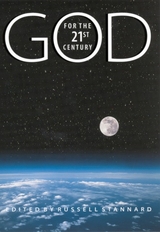
Just as modern science has revolutionized our understanding of the natural world, so can it expand our understanding of the Divine. In topics as varied as astronomy and cosmology, evolution, genetic engineering, extraterrestrial life, psychology and religious experience, spirituality and medicine, and artificial intelligence, fifty key thinkers discuss the interrelationship between science and religion.
Contributors include Robert Jastrow, first chairman of NASA's Lunar Exploration Committee and currently director of the Mount Wilson Institute; Rod Davies, former director of the Jodrell Bank Radio Astronomy Laboratories, U.K.; Owen Gingerich, senior astronomer, Smithsonian Astrophysical Observatory; Paul Davies, recipient of the Templeton Prize for Progress in Religion; Sir John Haughton, former director general of the United Kingdom Meteorological Office; Lord Habgood, former archbishop of York; and science writers Kitty Ferguson and Gregg Easterbrook.
The writers are drawn from eight countries and represent the Christian, Jewish, Islamic, and Hindu traditions. Most are scientists by profession, but also included are philosophers, theologians, and psychologists. Each chapter of this innovative, accessible book helps to expand our thinking in light of what is known at the dawn of the twenty-first century. Taken as a whole, this book presents a challenging understanding of God and of God's interaction with the world and with ourselves.
Topics covered include:
•Creation and evolution•Life on other planets
•Genetic engineering
•Faith and medicine
•The mind and the soul
•Quantum physics
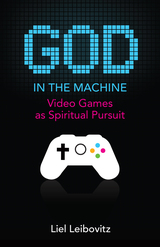
Yet video games remain relatively unexplored by both scholars and pundits alike. Few have advanced beyond outmoded and futile attempts to tie gameplay to violent behavior. With this rumor now thoroughly and repeatedly disproven, it is time to delve deeper. Just as the Museum of Modern Art in Manhattan recently acquired fourteen games as part of its permanent collection, so too must we seek to add a serious consideration of virtual worlds to the pantheon of philosophical inquiry.
In God in the Machine, author Liel Leibovitz leads a fascinating tour of the emerging virtual landscape and its many dazzling vistas from which we are offered new vantage points on age-old theological and philosophical questions. Free will vs. determinism, the importance of ritual, transcendence through mastery, notions of the self, justice and sin, life, death, and resurrection all come into play in the video games that some critics so quickly write off as mind-numbing wastes of time. When one looks closely at how these games are designed, their inherent logic, and their cognitive effects on players, it becomes clear that playing these games creates a state of awareness vastly different from when we watch television or read a book. Indeed, the gameplay is a far more dynamic process that draws on various faculties of mind and body to evoke sensations that might more commonly be associated with religious experience. Getting swept away in an engaging game can be a profoundly spiritual activity. It is not to think, but rather to be, a logic that sustained our ancestors for millennia as they looked heavenward for answers.
As more and more of us look “screenward,” it is crucial to investigate these games for their vast potential as fine instruments of moral training. Anyone seeking a concise and well-reasoned introduction to the subject would do well to start with God in the Machine. By illuminating both where video game storytelling is now and where it currently butts up against certain inherent limitations, Liebovitz intriguingly implies how the field and, in turn, our experiences might continue to evolve and advance in the coming years.
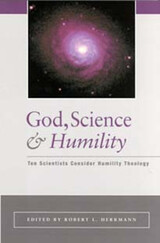
Editor Robert Herrmann has collected the opinions of ten scientists, all leaders in their fields, who have considered the relevance of their science to theology. The contributors bring a variety of religious experiences to the consideration of humility theology, a humble approach to our truth-seeking about God.
As a physicist, Russell Stannard provides an overview of humility theology in which truth is approached in an experimental, hypothetical mode, as is done in the sciences. Physicist and theologian Robert Russell focuses on the interaction between cosmology and theology. Charles Harper writes of the opportunity for a tremendous flowering of planetary science through a joint partnership between science and religion.
Owen Gingerich, historian of science, looks at the other side of humility theology—the possibility that we can actually arrive at unreasonable expectations— about the existence and nature of extraterrestrial intelligence. Francisco Ayala begins with the surprising contrast between the very brief period of human evolution and its remarkable and utterly unique end-product, homo sapiens. Psychologist David Myers points out that intuition can be a powerful faculty, but there are many limitations to this “inner knowing.”
Chemist Giuseppe Del Re writes an interesting view of the history of the development of chemistry as a discipline. Herbert Benson and Patricia Myers analyze the components of mind-body medicine that relate to the rubric of self-care, including relaxation procedures, nutrition, exercise, stress management, and faith. David and Susan Larson introduce the reader to a new field of medical science that focuses on the impact of spiritual values on patients' health. Fraser Watts looks at artificial intelligence research.
The discussion included in this book will significantly aid scholars and general readers in the search for greater understanding of the relationship between science and religion.
Contributors include Russell Stannard, Robert John Russell, Charles L. Harper Jr., Owen Gingerich, Francisco J. Ayala, David G. Myers, Giuseppe Del Re, Herbert Benson, Patricia Myers, David B. Larson, Susan S. Larson, and Fraser Watts.
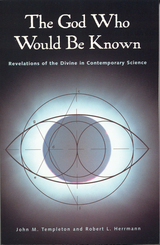
—from the authors
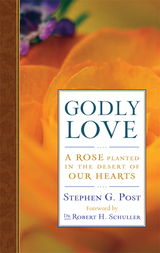
In this uplifting new book, author Stephen G. Post explores the mysteries and the wonder of Godly love. This all-important love is personal, unconditional, unlimited, generative, and omnipresent. The title alludes to Isaiah 35, how Godly love is said to plant a rose in our hearts precisely when we feel like a desert with no more love to give.
Post draws on his life experiences and works at the Institute for Research on Unlimited Love as he intersperses personal anecdotes with spiritual truths and research on human happiness. In the process, he defines the concept of Godly love and illustrates how important it can be in our lives—not only emotionally and spiritually but physically as well. "Godly love," he writes, "is the only foundation in the universe that we can really lean on."
We all have deserts in life, so we all need Godly love. Without it, the downward slide to cynicism, hostility, and cool indifference can be too easy. These meditations on the subject will nurture our confidence in the power of a love greater than our own when we need it most.
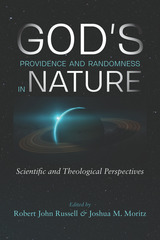
In October 2014, a group of mathematicians, physicists, ecologists, philosophers, and theologians gathered at a special conference in Berkeley, California, to present the results of a two-year research program dubbed “Project SATURN.” This program explored many rich avenues of thought at the intersection of modern science and Christian theology. Chief among them is the possibility that specific processes might be so complex that they do not have sufficient physical causes. Known as “ontological indeterminism,” this idea has profound implications for theology. Specifically, it allows God to be thought of as acting providentially within nature without violating the laws and processes of nature.
Such a momentous insight could influence how we understand free will, natural evil, suffering in nature, and the relation between divine providence and human evolution. The essays collected here discussed these topics and were initially presented at the 2014 conference. Part I establishes the scientific basis for conceptualizing specific processes in the universe as inherently random and possibly indeterministic. Part II discusses the philosophical and theological issues that spring from this understanding. Together they represent the cutting edge of thought in the increasingly productive dialogue between science and theology.
Short for the “Scientific and Theological Understandings of Randomness in Nature,” Project SATURN was created by the Center for Theology and the Natural Sciences, a Program of the Graduate Theological Union, Berkeley. It was funded with a grant administered by Calvin College and provided by the John Templeton Foundation.

For young or old, rich or poor, this wisdom will find many applications in people's lives. This inspiring collection of time wisdom by Sir John Templeton, presented in a beautiful gift book, is perfect for a person seeking deeper meaning in life. Practical and uplifting advice based on a lifetime of experience is gathered in an attractive package for personal use or as a perfect gift. Juxtaposed to his sayings are short essays that elaborate on the ideas and make them easier to understand and apply. Themes, such as thanksgiving, forgiveness, positive thinking, love, humility, and happiness, arrange the thoughts.

The traditional markers of growing up are getting married and becoming financially independent. But young adults are delaying these milestones, sometimes for a full decade longer than their parents and grandparents. This new phase of “emerging adulthood” is diminishing the involvement of young people in religious institutions, sapping the strength and vitality of faith communities, and creating a more barren religious landscape for the young adults who do eventually decide to return to it. Yet, clearly there are some churches, synagogues, and mosques that are making strides in bringing young people back to religion.
Got Religion? offers in-depth, on-the-ground reporting about the most successful of these institutions and shows how many of the structural solutions for one religious group can be adapted to work for another.
The faith communities young people attach themselves to are not necessarily the biggest or the most flashy. They are not the wealthiest or the ones employing the latest technology. Rather, they are the ones that create stability for young people, that give them real responsibility in a community and that help them form the habits of believers that will last a lifetime.
READERS
Browse our collection.
PUBLISHERS
See BiblioVault's publisher services.
STUDENT SERVICES
Files for college accessibility offices.
UChicago Accessibility Resources
home | accessibility | search | about | contact us
BiblioVault ® 2001 - 2024
The University of Chicago Press









